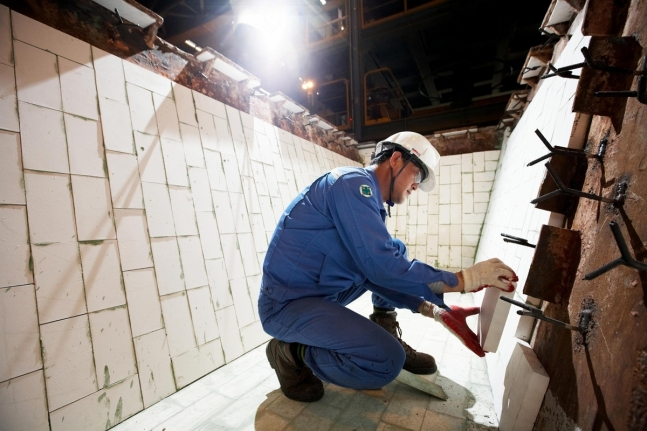South Korea's battery materials maker POSCO Future M Co. announced on Monday its achievement in reducing significant carbon footprints by fully recycling waste refractories, a pivotal industrial material.
Primarily extracted from seawater magnesia and shaped similarly to bricks, refractories are known for their fire-resistance. In steel manufacturing, they are strategically positioned inside blast furnaces and converters, essential in safeguarding equipment from the intense heat of molten iron.
Previously, during maintenance, these refractories were mostly sent to landfills. However, in a bid to promote resource sustainability and cut carbon emissions, the company ramped up its recycling efforts. The recycling rate witnessed a sharp increase, surging from 40% in 2020 to a full 100% in the following year.
This recycling strategy enabled the firm to process 17,000 tons of waste refractories last year, translating to a saving of 1.4 billion won. Moreover, it led to a reduction in carbon emissions by 30,000 tons annually, an environmental impact akin to planting nearly 3.75 million trees.
The company has diversified the use of these recycled refractories, incorporating them as raw materials in cement production, foundry sand, and even as covering for landfills.
Boasting ingredients beneficial for cement production like silica and alumina, the waste refractories have garnered attention. Strengthening this initiative, POSCO Future M. entered into a resource circulation ESG Partnership MOU in 2021, aligning with domestic cement producers for the supply.
Beyond cement, the heat-resistant properties of these refractories make them suitable for foundry sand, utilized in melting metals and molding. They also play a pivotal role in covering waste dumps, preventing dust and minimizing unpleasant odors.
Write to Hyung-Kyu Kim at
khk@hankyung.com




